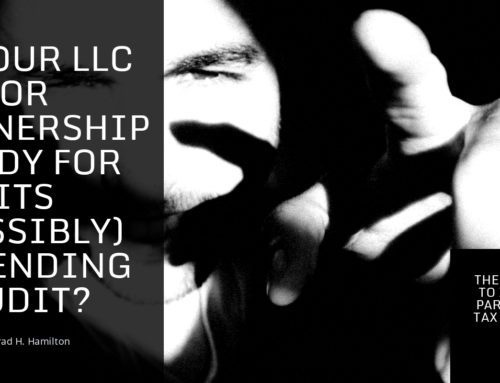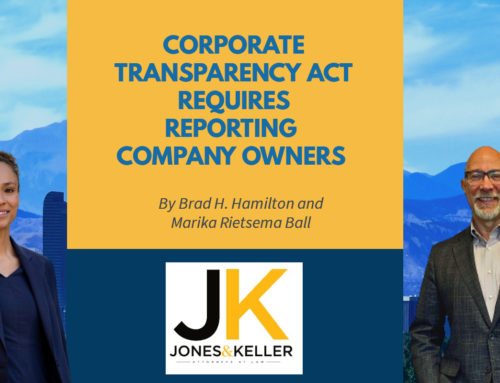A recent Colorado case emphasizes the risks of using unregistered and unlicensed “finders” to sell securities in private placements. A “finder” is a person who is not registered with the Securities Exchange Commission or any other regulatory authority, but who nevertheless assists in the sale of securities. Use of “finders” to sell securities in a private placement is always risky, because it is difficult to monitor and control their activities.
The facts in Black Diamond Fund LLLP v. Joseph provide a what-not-to-do checklist for every entrepreneur or business owner trying to raise money through a private placement. Black Diamond Fund (“BDF”) was an investment vehicle managed by Wealth Strategy Partners and Harvey Altholtz of Sarasota, Florida. BDF offered $10 million in unregistered partnership interests in reliance on the private placement exemptions from registration provided by federal securities law. Mr. Altholtz testified that BDF offered the limited partnership interests through a network of at least 50 “finders” nationwide, 5 of whom were in Colorado. BDF paid a 5% finders fee to each finder upon completion of a sale.
The Private Placement Rules
It is illegal to sell securities in the United States without registering the securities with the SEC and state securities commissions, unless the sale is within an applicable exemption from registration – commonly known as a private placement exemption. However, a “private placement exemption” is not found in one simple rule. Rather, a variety of rules, regulations and SEC guidance must be followed to successfully conduct a private placement. For example,
- the securities must be sold privately (hence, “private placement”), and
- the persons selling the securities must be either
- registered and licensed as broker-dealers or investment advisers, or
- exempt from registration.
Failure to meet any one requirement can mean the loss of the private placement exemption for the entire offering. Loss of the exemption gives all of the investors the right to rescind the investment and get their money back (often with attorneys’ fees), and leaves the issuer and its directors and officers vulnerable to legal action from federal and state securities commissions. Moreover, securities liability is usually personal liability to the individuals involved; which brings us back to BDF and Mr. Altholtz.
Facts of the Black Diamond Case
One of BDF’s Colorado “finders” was William Gay. Altholtz testified that he knew Mr. Gay had some trouble with the SEC (a wildly waving red flag Mr. Altholtz ignored), but he did not know that Gay was permanently barred from associating with any registered broker-dealer, that the Colorado Securities Commission had revoked his investment advisor license, and that the Denver District Court had issued a permanent injunction prohibiting Gay from associating in any capacity with any person or company involved in selling securities in Colorado.
Mr. Gay’s modus operandi was the proverbial “free lunch”, and an occasional free dinner. Gay invited people to “investment seminars” where he would feed them both food, and investment advice that pointed to investments in BDF. The invitations were sent to Colorado residents by mail. Gay had no preexisting relationship with many of the people he invited to the lunch and dinner “seminars”, and the invitations urged the recipients to “feel free to invite a friend”. The seminars were presented by both Gay and Altholtz.
For a placement to be private it cannot be offered to the public – it can only be offered to people the offeror already knows. If the securities are marketed to the public, it is not a private placement, and the private placement exemption is lost. Obviously, mass mailing invitations to potential investors is public advertising – not a private offering.
If the public solicitations were not enough, Gay also took an active part in selling the partnership interests. He discussed the BDF opportunity with investors, obtained signed subscription agreements, and collected payment, which he sent on to Altholtz, who paid Gay a 5% commission. If a finder is actively involved in an offer or sale, and is not a registered broker-dealer or investment adviser, then the securities were sold by an unregistered and non-exempt person and the private placement exemption is lost.
Finally, the court held that the fact that Gay was barred and enjoined from selling securities or associating with those who do was a material fact that should have been disclosed to investors, and since Altholtz knew or should have known that fact and failed to disclose it, Altholtz was liable for securities fraud.
In the end, Altholtz and BDF were liable for selling unregistered securities without an exemption, using an unregistered broker-dealer, and for securities fraud.
No Free Lunch
There is no free lunch when issuers allow finders to help them sell securities. The use of even one unlicensed and unregistered finder is risky, and the issuer and its officers and directors can be liable for the finder’s acts. Before agreeing to pay anyone who is not a registered broker-dealer or investment adviser to assist in a private placement, issuers should consult with experienced securities counsel to fully understand the risks and limitations.




